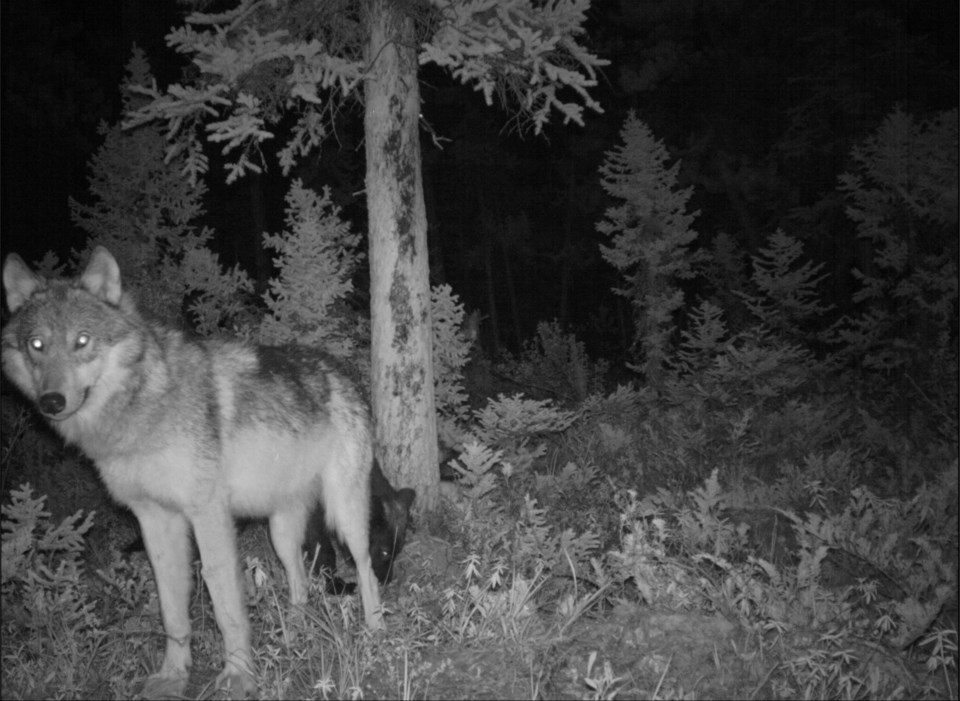The badly decomposed body of a giant wolf found dead near Bragg Creek has been genetically linked to the previously thought extinct species of dire wolf.
The massive beast, with paws three times the size of a man’s hands, appears to have died of natural causes and was discovered by some back country snowmobile enthusiasts on March 24.
Because of the unusualness of the creature, Dr. Ozzy Fenris of Mount Royal University was called in by local wildlife authorities to study the beast.
“I was absolutely shocked by what I was seeing,” said Fenris. “As a scientist who has studied wolves and other Alberta wildlife for decades, I tend to believe in facts. This time I couldn’t even believe my own eyes.”
Fenris at first theorized it was just a genetically mutated regular wolf or one suffering from some form of medical gigantism, but one DNA test soon dispelled this idea. Fenris said when the wolf’s profile came back as a match similar to DNA patterns of an extinct dire wolf subspecies, he had to run the test again.
“In one’s career, one rarely encounters something which so turns your perceptions of the world upside down. This did it for me,” he said.
Dire wolves were previously thought to have died out 9,500 years ago and have no immediate genetic ancestors among modern wolves or canines. However, First Nations myths about giant wolves roaming the mountain forests have been spoken of for generations.
Fenris said it sure makes you think.
“You know, it’s almost as if someone in the media is pulling an April Fools Day joke on us,” he said. “It’s almost impossible to believe.”




